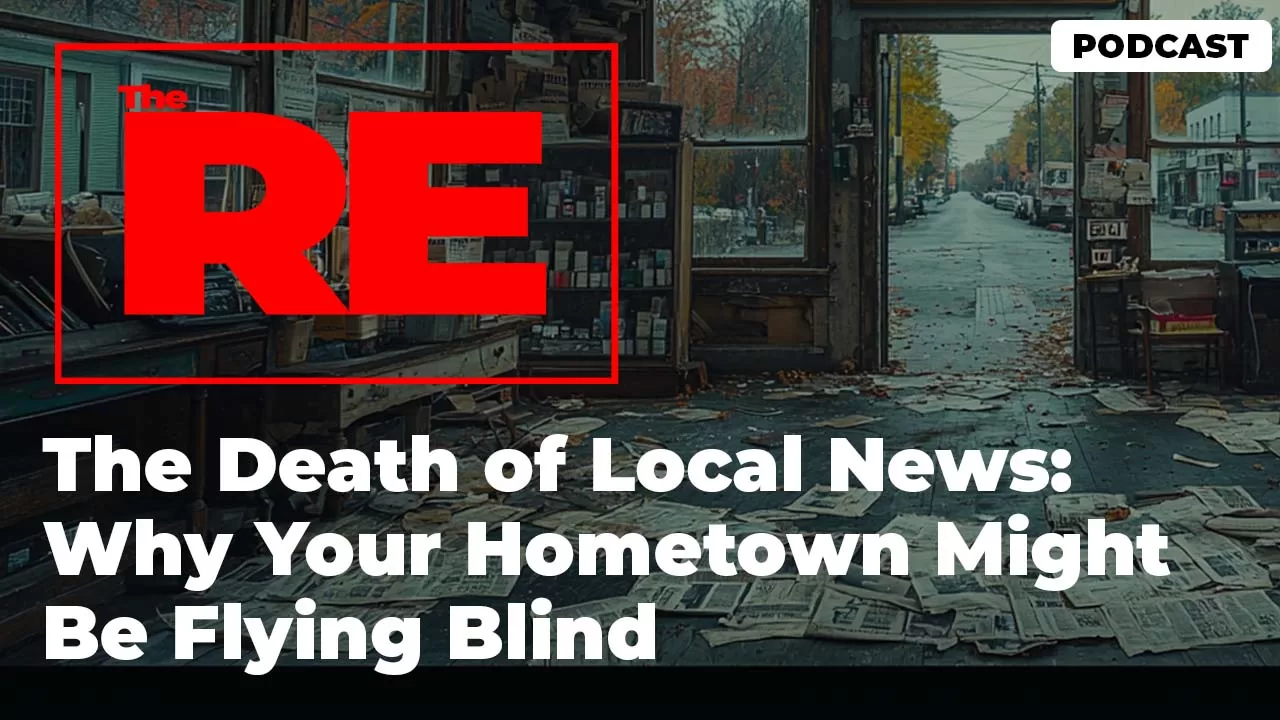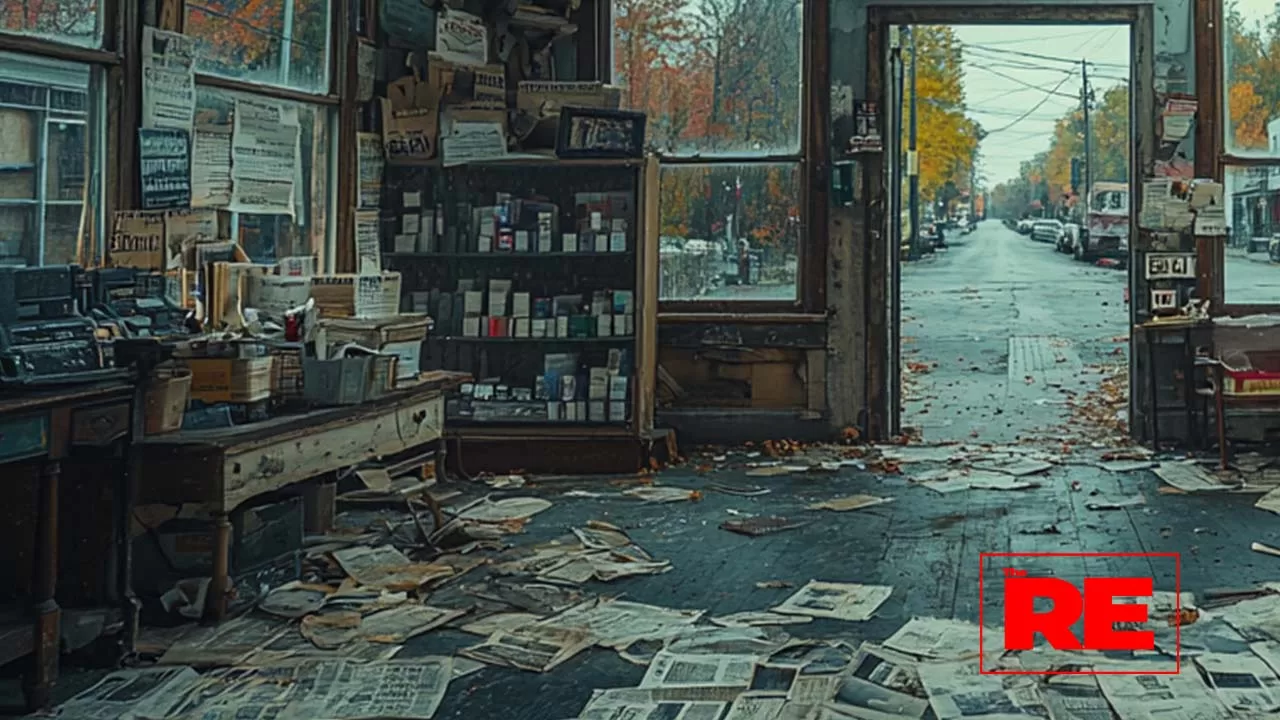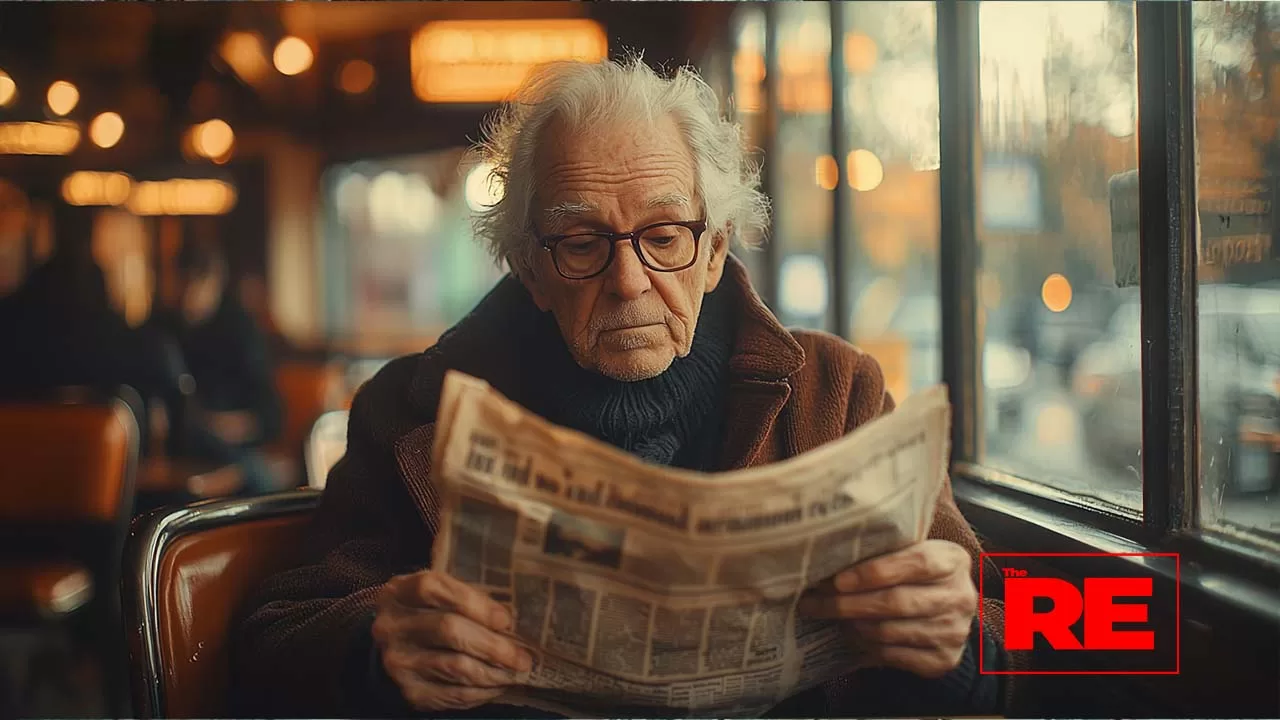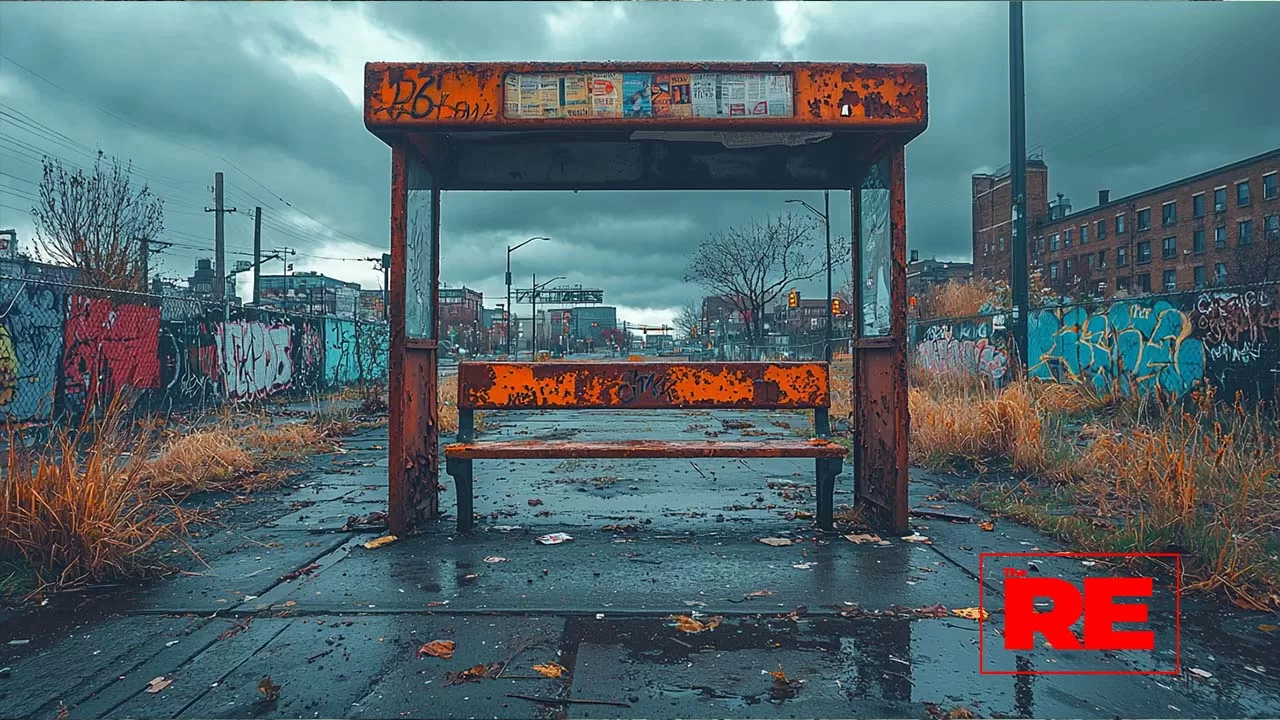The Ripple Effect
-News and Commentary-
The Death of Local News: Why Your Hometown Might Be Flying Blind
- Home
- News and Commentary
- The Death of Local News: Why Your Hometown Might Be Flying Blind
Share On Social

Today in The Ripple Effect we are discussing the death of local news and why your hometown might be flying blind. There was a time when the local newspaper hit your porch before the sun even thought about rising. When you could walk into a diner and hear people arguing about what they read that morning. Not just national headlines but school board meetings and zoning laws and which high school team was heading to the championship. Local news was not just information. It was the stitching that held communities together.
Now the front pages are thinner. The bylines are vanishing. And the silence is louder than we realize.
Across America small newspapers are folding at a terrifying pace. Over two thousand local papers have shut down since 2005. Whole towns now sit in what researchers call news deserts. No reporters covering city councils. No watchdogs following the money. No journalists sitting in courtrooms or school board meetings asking hard questions that need to be asked.
It is easy to shrug it off and think it does not matter. There is always the internet. There is always social media. There is always someone posting something somewhere. But those places do not fill the same role. They are loud but they are not accountable.
They are fast but they are not thorough.
Local news was never just about information. It was about shared reality. It was about telling you when the water was not safe to drink. Or when a new business was coming to town. Or when someone needed help after a fire or a flood. It was about building community muscle memory. It was about saying you live here and you deserve to know what is happening here.
When that goes away. When no one is paying attention to the small things. The big things start to slip too.
Corruption gets easier. Budgets get rubber stamped. Public officials make decisions behind closed doors because nobody is there to ask why. And slowly quietly the sense of being part of something bigger than yourself starts to erode.
You do not know who your school board members are anymore. You do not know how your tax dollars are being spent. You do not know if your police department is buying military gear or if your mayor just signed a deal with a company that has a bad record. You do not know because no one told you. Because no one was there to find out.
The national news will not catch it. They are chasing the next big crisis. The next trending topic. The next ratings bump. They will not send a team to cover your city council sneaking through a zoning change that lets a developer bulldoze the last green space in your neighborhood. They will not send a reporter when your public hospital quietly cuts services because a private equity firm bought it and wants to juice the profit margins.
Only local journalism can do that. And when it dies. The people lose the power to see their own lives reflected back at them.
The slow collapse of local news is not just an accident. It did not happen overnight. And it did not happen because people stopped caring. It happened because the business model broke. It happened because small papers that used to thrive on classified ads and local business sponsorships were gutted when giants like Craigslist and Facebook moved in and took the revenue without putting anything back.
It happened because private equity firms and hedge funds started buying newspapers not to run them better but to strip them down. They slashed newsrooms. They cut investigative teams. They merged papers together and sold off the assets like real estate deals. They treated journalism like a spreadsheet. If a reporter could not produce immediate profits they were cut. If a bureau cost money to run it was closed. And so slowly painfully the ability of local papers to do real journalism started bleeding out.
What replaced it was wire service content. Reposted national stories. Fluff articles designed to fill space without asking hard questions. The faces in the newsroom changed. Then the newsroom itself shrank. Then one day it was gone.



In some places nonprofit models have tried to fill the gap. New local news startups have popped up online. Some of them are doing incredible work against impossible odds. But they are fighting an uphill battle. They are often understaffed and underfunded. And while they work to rebuild the trust and reach that old newspapers once had the forces dismantling local journalism keep moving faster.
Big tech platforms benefit from the chaos. They make billions serving up news without paying for its creation. They control what you see when you search for a topic. They decide what trends and what gets buried. They became the new front page without taking on the responsibility that came with it. They are not evil in some cartoon villain way. But they are built to maximize clicks not to serve democracy. They are designed to keep you scrolling not to keep you informed.
And when the watchdogs are gone bad actors move in. Politicians with no fear of scrutiny. Corporations with no fear of exposure. School boards and police departments and mayors who know nobody is watching. It is not about catching every scandal. It is about preventing them from happening in the first place because people know someone is paying attention.
Without local news the darkness grows quietly. Deals get dirtier. Discrimination gets buried. Public money gets wasted. The community starts losing the sense that their voice matters because they stop seeing it reflected anywhere.
And the damage is generational. Kids growing up today in news deserts are less likely to vote. Less likely to be civically engaged. Less likely to feel connected to their own towns. Democracy is not just national debates. It is local decisions about schools and roads and parks and safety. When local news disappears democracy withers from the roots up.
There are ways to fight back. Subscribe to local papers if you still have them. Support nonprofit journalism. Share real reporting with your neighbors. Push for legislation that forces tech platforms to pay for the journalism they profit from. Teach your kids that information is not free. It costs real work by real people to find the truth.
Because if we do not defend local journalism now it will not come back later. And the cost will not just be measured in empty newsstands. It will be measured in stolen futures. In broken communities. In blind spots we never saw coming until it was too late.
The death of local news is not just a media story. It is a warning. A quiet unraveling. And if we do not pay attention the next headline we miss might be the one that could have saved us.

"Truth survives because of you. Make your gift count."
Every dollar helps us fight misinformation and dig deeper into stories that matter.


 and then
and then